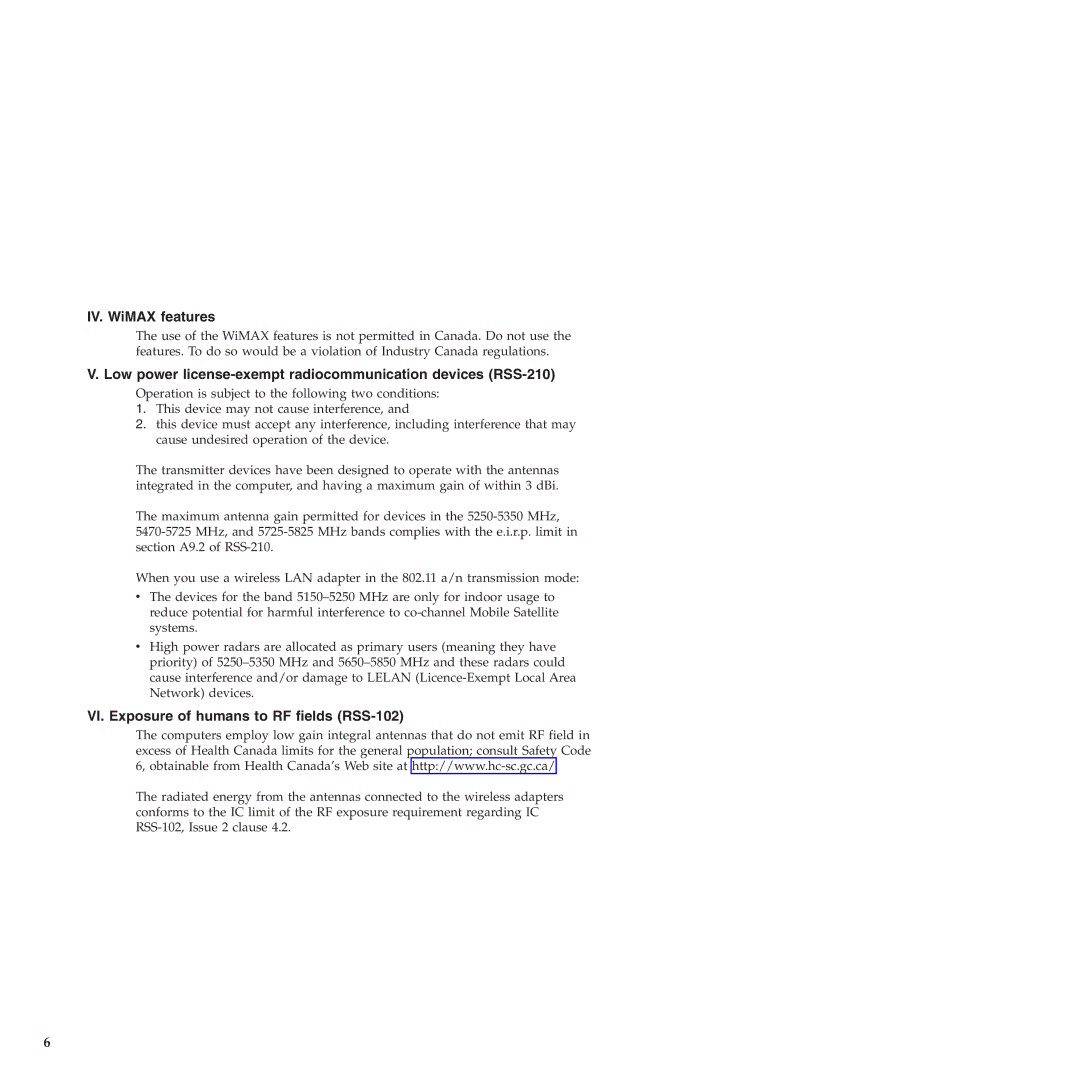IV. WiMAX features
The use of the WiMAX features is not permitted in Canada. Do not use the features. To do so would be a violation of Industry Canada regulations.
V. Low power license-exempt radiocommunication devices (RSS-210)
Operation is subject to the following two conditions:
1.This device may not cause interference, and
2.this device must accept any interference, including interference that may cause undesired operation of the device.
The transmitter devices have been designed to operate with the antennas integrated in the computer, and having a maximum gain of within 3 dBi.
The maximum antenna gain permitted for devices in the
When you use a wireless LAN adapter in the 802.11 a/n transmission mode:
vThe devices for the band
vHigh power radars are allocated as primary users (meaning they have priority) of
VI. Exposure of humans to RF fields (RSS-102)
The computers employ low gain integral antennas that do not emit RF field in excess of Health Canada limits for the general population; consult Safety Code 6, obtainable from Health Canada’s Web site at
The radiated energy from the antennas connected to the wireless adapters conforms to the IC limit of the RF exposure requirement regarding IC
6
